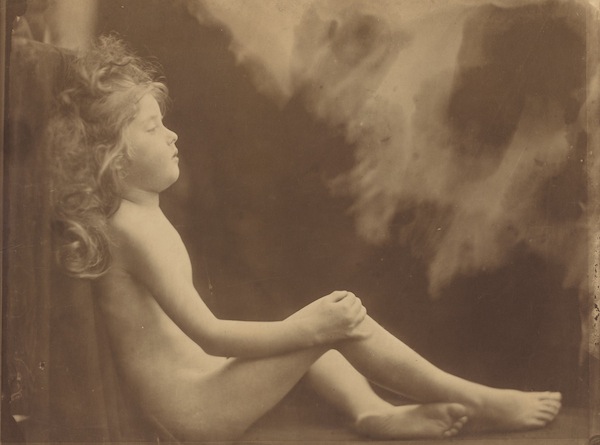Bourbon and Milk is an ongoing series that dives into the perplexing spaces parenting sometimes pushes us, and explores the unexpected ways writers may grow in them. If you’re interested in joining the conversation or contributing a Bourbon and Milk post, query Giuseppe at giuseppe@americanshortfiction.org.
We’d just finished dinner and Z was sitting on my lap. At the opposite end of the table, P was sipping a well-deserved glass of wine.
“Is today Tuesday, Daddy?” Z said.
“Today’s Wednesday,” I said, and without warning began to tickle and nuzzle her until she was laughing so hard she could barely breathe.
When I finally let up, she was giddy, her cheeks were flush, and her grey-blue eyes were tearing. I was filled with the kind of clichéd joy parents often tell you they’re overcome with when looking at their children.
Across the table, P lowered her glass and smiled.
As Z recovered, I wiggled my fingers to let her know more was in store, but before I could make a move she clenched her teeth, reached up, and wrapped her hands around my windpipe. I gasped, then caught my breath, and calmly asked her to stop. She responded by squeezing harder.
“When someone asks you to stop,” I said firmly, prying her little fingers from my neck, “you need to listen.” Then, softening, “It’s not nice to put your hands on people like that.”
“I was just playing.”
“That’s not how we play, baby.”
“But why, Daddy?”
And down an amazing why-hole we went. Inevitably, we boomeranged back to the beginning. “It’s never okay to hurt people on purpose,” I said hoping to bring it all home.
She paused and looked down, perhaps a little ashamed or self-conscious.
“No one hurts you on purpose,” I went on. “No one puts their hands around your neck, right?”
“Yes they do.”
“Who?” I asked. I was skeptical, but kept my tone neutral. I didn’t want to frighten or deter her. If someone had hurt her I obviously wanted to know about it.
“Mommy puts her hands on my neck,” she said.
Which made me chuckle. Neither P nor I ever lay hands on her. Both of us took too many smacks as kids to travel down that path with our own.
P looked up from her wine and gave me a crooked grin.
“Mommy loves you,” I said. “She doesn’t put her hands on you like that.”
“Yes she does,” Z insisted.
“It’s not nice to lie,” P finally said. “Do you know what a lie is?” And calmly moved towards making the exchange a teaching moment.
Parenting aside, as a writer, I couldn’t care less about the lying. I was more interested in seeing where this went.
“Baby,” I chimed in. “When does Mommy put her hands around your neck?”
“When she drinks wine,” Z said as if she’d been anticipating that very question, as if she’d been waiting for the right opportunity to unburden herself of the things her mother had been doing to her.
I looked away and swallowed my laughter. Past Z’s shoulder, P’s jaw was slack. Can you believe this chick? she mouthed.
Z looked from my face to her mother’s and giggled. She knew she’d done something either oddly charming or funny. At the very least, she understood she’d thrown us off. Not that we were shocked by her words. For the past several months, she’d steadily progressed from incoherent narrative sketches to more nuanced story arcs that unexpectedly and delightfully danced back and forth between truth, fantasy and blatant lies.
Even so, this felt different. There was something about the progression, the timing, the manner in which she owned the words that made what she was saying impossible to dismiss. In a few quick turns, she’d created a tangible narrative—laced with an external threat—that extended just beyond the reach of who she is (a three-year-old with limited reference to a world beyond herself) or who I think she is (a three-year-old lacking the wherewithal to anticipate and manipulate the expectations of those around her). As these scraps of thought swirled, I briefly lost track of the truth—little girl playing with her father tells a lie—and found myself viewing the narrative sequence through the lens of possibility. What if she shared this story at her pre-school? What kind of person would choke a three-year old? How screwed up would that kid’s life be—now or down the line?
There’s a terrific Frederick Reiken essay titled, “The Author-Narrator-Character Merge: Why Many First-time Novelists Wind up with Flat, Uninteresting Protagonists.” Like most worthwhile craft essays, it weaves personal experience through larger concerns, and includes just the right amount of conjecture. But the primary thrust of the essay, as the title suggests, revolves around how first novels, including Reiken’s own, often fall victim to a “particular type of flatness that comes from…the author-narrator-character or ANC merge.”
At its simplest such a merge may be thought of as the narrative structure that occurs when an author, for reasons ranging from naiveté to authorial narcissism, fails to invent and/or reinvent—i.e. in the case of the autobiographical novel—the main character, both visually and in relation to some objective external context. What is happening, unconsciously, is the author has not separated himself or herself imaginatively from the character being written. He has not conceived the fictional construct as another—
Ultimately, Reiken arrives at a variety of ways an author might successfully unmerge him or herself from the main character, but my exchange with Z kept me coming back to the idea of reinvention and the importance of an external context.
“We all have stories to tell,” Reiken points out, “because we happened to live through them or at least observe them directly, and if we’ve chosen fiction as our medium, then why not have fictional characters that correspond to oneself?”
When I first read this essay I was in grad school. There was a vague intention, at best, within my work. I can almost see myself—ten years younger, hungover, exponentially more self-righteous—nodding at my right to write fictional characters that corresponded to my experiences. What I didn’t fully grasp, however, was that in order to successfully tap autobiographic fiction:
You must be able to watch yourself, visually, as a character on the screen of your own imagination. The fiction becomes, in this sense, a translation or transmutation of the experience you are imagining, rather than the one you are recalling…The formidable task of unmerging yourself from a narrative will be tied to the ability to focus the narrative lens on some very singular and distinct external situation.
Though Z has no frame of reference for what a person who drinks too much wine is capable of doing to someone they love, she succeeded, I would argue, in communicating the very worst possible outcome—whether intentional or not—by reinventing, or reimagining herself as a character in her own narrative. The moment she pushed beyond, “Mommy puts her hands on my neck,” which drew focus primarily to her unsubstantiated claims, and introduced the possibility of a drunk, abusive mother, she placed herself in relation to a distinct external situation she had no control over and, theoretically, was compelled to act in relation to.
The kid, for all intents and purposes, was crafting good, sound, compelling fucking fiction.
So, what am I getting at? Is my kid gonna be a writer? Maybe. Is she advanced? I don’t know. All I’m saying is that I’m constantly fascinated by the way being a parent, among other things, continues to reinforce the fact that our narrative impulses are innate, even while our literary ones are cultivated and earned. Traversing the space between the two is where the writer makes her bones, much like pushing up against your frame of reference until it bends and breaks determines what you, as a person, might grow into.
Here’s what some other writers had to say about their kids’ realities and craft:
 My daughters are a little less then two years apart, and when they were very young, money was, as money is, tight. Still, we traveled frequently. At first, when it was just my wife and me and one daughter, we either camped or stayed with friends. But two months after my youngest daughter was born, we decided to drive from St. Louis to a town near Toronto to visit my mother. We’d made the trip before, but we’d flown because my oldest daughter, Zoey, had been under the age of two and could fly on my lap for free. The drive was long, made longer because Zoey decided that she was done with diapers, and we had to stop to take her to the bathroom every thirty minutes. When it became clear that we weren’t going to make the trip in one day, we decided to get a hotel room. Because we had our dog with us, and because we couldn’t afford much, we stopped at a run-down motel in the middle of nowhere. The lobby had sharp white tile. It was designed to be cleaned quickly and easily. To make sure there weren’t any blood stains on the floor. When the door to our room slammed shut, the walls rattled like the set on a television sitcom. If you aren’t picturing it yet, it was the kind of hotel that alcoholic men go to while trying to rebound from divorces, where you aren’t surprised to find a dead body in the bathtub. Trust me when I tell you that, even though the bar was not set very high at the time, I had stayed in nicer hotels.
My daughters are a little less then two years apart, and when they were very young, money was, as money is, tight. Still, we traveled frequently. At first, when it was just my wife and me and one daughter, we either camped or stayed with friends. But two months after my youngest daughter was born, we decided to drive from St. Louis to a town near Toronto to visit my mother. We’d made the trip before, but we’d flown because my oldest daughter, Zoey, had been under the age of two and could fly on my lap for free. The drive was long, made longer because Zoey decided that she was done with diapers, and we had to stop to take her to the bathroom every thirty minutes. When it became clear that we weren’t going to make the trip in one day, we decided to get a hotel room. Because we had our dog with us, and because we couldn’t afford much, we stopped at a run-down motel in the middle of nowhere. The lobby had sharp white tile. It was designed to be cleaned quickly and easily. To make sure there weren’t any blood stains on the floor. When the door to our room slammed shut, the walls rattled like the set on a television sitcom. If you aren’t picturing it yet, it was the kind of hotel that alcoholic men go to while trying to rebound from divorces, where you aren’t surprised to find a dead body in the bathtub. Trust me when I tell you that, even though the bar was not set very high at the time, I had stayed in nicer hotels.
But the thing is, even though I know the hotel was that kind of a hotel, I don’t remember it as that kind of hotel. I remember it being something wondrous and magical, because, to my oldest daughter, to Zoey, it was something wondrous and magical. She was barely two, and when we came into the room — the closing door rattling the walls — we rushed her into the bathroom. After she finished on the toilet, she stood at the sink and watched me unwrap the paper packaging around the soap. With the sort of amazement and glee that only a two-year-old can have, her eyes wide despite ten hours in the car, she said, “They have soap!” She said it as if, instead of unwrapping a bar of soap, I’d unwrapped a unicorn. And then, as she finished washing her hands and I handed her a towel, she started to laugh and she said, with the same sense of discovery, “They have towels!”
I like to tell this story when I tell students about setting. It’s important to remember that the way we see a room depends so much on who is doing the seeing. But I also like to tell this story to myself as a way to remember that as much as I’m teaching my daughters how to see the world, they are just as much teaching me how to see the world anew.
Alexi Zentner is the author of the novels The Lobster Kings (May 2014) and Touch. Alexi’s fiction has appeared or is forthcoming in The Atlantic Monthly, Narrative Magazine, Tin House, Glimmer Train, The Southern Review, The Walrus, and many other publications. Alexi is an Assistant Professor at Binghamton University and a faculty member in the Sierra Nevada College low-residency MFA program. He lives in Ithaca, NY with his wife and daughters. www.alexizentner.com
 There are certain games my nearly four-year-old daughter wants to play that trouble me. For example, yesterday she said, “Knife me, Papa.”
There are certain games my nearly four-year-old daughter wants to play that trouble me. For example, yesterday she said, “Knife me, Papa.”
“No, sweetheart.”
“Stomp on me.”
“I love you.”
“Cut me into pieces and eat me.”
“I will eat you up, but I won’t cut you into pieces. I’ll eat you whole.”
“Okay, then I knife you.”
“No, you won’t.”
“Yes. Give me your arm.”
She knifed my arm with her toy knife. It slid off my skin.
I don’t mind quite as much when she pretends to stab me, but I refuse to pretend to hurt her. Though I know this will sound sentimental, the truth is there is no one I love more in the world than my daughter. I gave her a bath and dressed her in her pajamas. I read her three books. After I turned out the light in her room, she hugged me and said, “Papa, I love you from here to the moon.”
“Thanks,” I said.
“I’m happy you’re my Papa.”
“Thanks, sweetheart. I’m happy you’re my daughter.”
“Are you going to die?”
It took me an instant to recognize the pivot she often makes these days. “Yes, but not today. Not soon, I hope.” And then I saw the beginnings of sadness and confusion on my daughter’s face. So although I felt implicated by my own superstition, I went on: “Probably not for a long time.”
“Is Mama going to die?”
“Yes, but not for a very long time.”
She squirmed in her bed where she sat up with her legs outside the covers and red and blue sailboats on her pajamas, and she stared at the small neon stars cast on the ceiling by an electric turtle. The turtle perched on the bureau emanating a pattern of stars and a sickle moon on the ceiling.
“Am I going to die?” she asked me.
“Yes, sweetheart, but not for a very long time.”
“Am I going to die before you?”
“No, absolutely not. We don’t want that. If things go the way they should, we will both live a very long time, and then someday I will die before you.”
“I don’t want you to die before me,” she said, sounding like a fully developed human being wrestling with mortality.
“Don’t worry about that. That won’t be for many years.” I hope I didn’t just jinx myself, I thought, my old superstitions haunting me. I kissed her eyelids. And I pulled the covers over her. She kicked them off. “I’m drawing a magic circle around you,” I told my daughter, and drew my hand around her bed tucked in a corner of the room from wall to wall. This was something my mother used to do: draw a “magic circle” around me, assigning favorite superheroes to keep guard while I slept so that I would be unharmed. After learning of the misfortunes of friends of mine who have had babies die in their sleep or develop tumors that killed them, I am open to any magic or prayers or anything else that offers a sense of peace, a respite from the howling winds of this brutal, violent, love-torn world, however temporary that may be. “Sweet dreams,” I tell her. “You’re Papa’s brussels sprout.”
For a narrative to work as a compelling story the reader must feel implicated in tension that has to do with something unresolved. This tension moves the story forward. Having frank discussions with my daughter helps me to see the complexities of human beings. Much of the tension in my life stems from my conflicting desires, hopes and fears. We each grapple with our condition in a unique way, but we share the condition itself, the unavoidable truth of the ticking clock, the knowledge that your individual consciousness will come to an end.
Zachary Watterson’s essay “Open Late Hours” was listed as a notable essay in Best American Essays 2013. His short stories and essays have appeared in Massachusetts Review, River Styx, The Stranger, Commentary, and Post Road.
 Lately, my toddler twins have been busy naming the world. They called a red kayak perched on its end a “rocket ship.” A Hershey’s kiss is a “castle chocolate,” because of its shape – like a sand castle, with a silver wrapper, the color of knight’s armor, and the paper plume that trails like a medieval banner. A snorkel is a “candy cane,” sharing the same curving shape. A three-pronged mini massager is a “tractor.” They have a knack for defamiliarization, presenting the common in a strange way, a literary technique that revives stale character and meaning.
Lately, my toddler twins have been busy naming the world. They called a red kayak perched on its end a “rocket ship.” A Hershey’s kiss is a “castle chocolate,” because of its shape – like a sand castle, with a silver wrapper, the color of knight’s armor, and the paper plume that trails like a medieval banner. A snorkel is a “candy cane,” sharing the same curving shape. A three-pronged mini massager is a “tractor.” They have a knack for defamiliarization, presenting the common in a strange way, a literary technique that revives stale character and meaning.
Yet the twins aren’t speaking in metaphor. At this stage of development, they’re literal and concrete in their language. They describe their reality with the words they possess, from what we’ve taught them reading from books or from our adventures together. Indeed, their inadvertent poetry is a consequence of their limited vocabulary.
Don’t writers find freedom in constraint?
When faced with a blank page, starting with a writing prompt – for example, a set first line or a suggestion to write about a conflict between a mother and daughter – can fire up your imagination.
As an undergrad, one of my favorite fiction workshops focused on generative devices, imposed constraints, limitations, and laws developed by the writer before writing, that spark inspiration – such as the short story I wrote without using the letter “e” (in the style of Georges Perec).
And in verse, poets turn to constraints of rhyme, fixed metric patterns, and fixed forms. As William Wordsworth writes in his sonnet, Nuns fret not in their Convent’s rooms/and Hermits are contented in their Cells;/and Students in their pensive citadels.
By the time the twins turn three this summer, they’ll speak at least 200 words and form three-word sentences. Their language skills explode like the Big Bang, each word another star.
Vanessa Hua is an award-winning writer and journalist who blogs at threeunderone.blogspot.com
